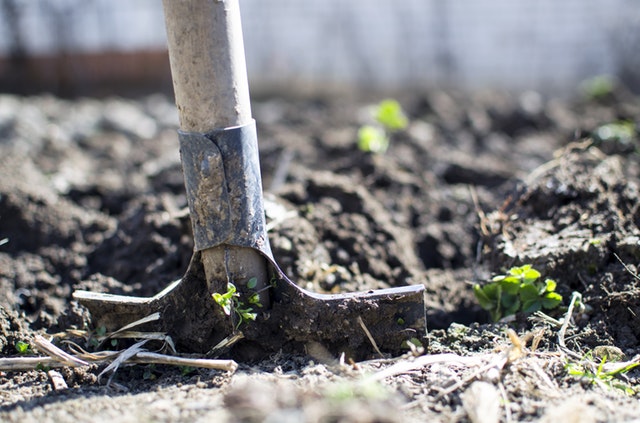
Caregiving is often stressful, frequently overwhelming and sometimes confusing. In many cases, finding any time for yourself can be an immense challenge and when you do, the natural response is to relax as much as humanly possible.
Even if your caregiving situation isn’t as intense as I’ve just described, the truth is that you may still have little time for yourself.
Which begs the question, why is this post about an idea that takes up time?
After all, gardens can be fairly involved, especially as you do need to work on them regularly to make sure your plants don’t die and your patch doesn’t become overgrown.
The reason for focusing on gardening is that self-care is critical for caregivers – and not just for your health either.
This is because caregiving is stressful and it is difficult. Any situation like this will tend to become more difficult over time, leaving people feeling run down and burned out. Indeed, burnout is a common issue for many groups of people, including social workers and caregivers.
And, when you are burned out?
Well, it’s hard to take care of yourself, let alone anyone else.
Avoiding caregiver stress and burnout is achievable and self-care is a key step in that direction. There are also various personal care items that can support caregivers, including ways to treat yourself and to simply relax.
At the same time, it’s critical to remember that you are important and valuable. Taking care of yourself doesn’t mean you’re being selfish, even though it can sometimes feel that way.
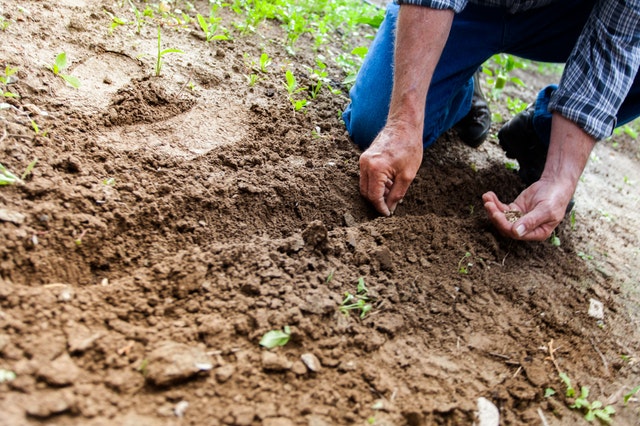
Which brings us back to caregivers and gardening.
As a self-care tool, gardening is amazing.
Working in your garden can help you put aside all of the worries and the stresses that are bothering you. You’re also getting out in the fresh air, which is appealing on its own.
There are also health benefits to gardening, including both mental and physical implications. For example, the physical activity can help to lower disease risk – and gardening is an enjoyable way to get some physical activity in.
At the same time, gardening has been associated with mental clarity and may help to reduce the risk of mental illnesses, like depression. These patterns alone mean that gardening can reduce the risk of burnout as a caregiver, lowering your stress levels at the same time.
After all, gardening is well-known as a way to de-stress and disconnect from the world around you.
This makes it an essential tool for caregivers, especially for anyone who is feeling overwhelmed.
Making Gardening a Reality
Beneficial or not, getting involved in gardening isn’t always easy.
For one thing, many people have never tried their hand at gardening, so they don’t know where to start or what to do. Thankfully, there is a lot of good information out there.
The site Common Sense Homesteading is one example of this and it offers a 10-step guide to starting your own garden. Another is a post by The Local Tree Expert, which talks about making a staycation paradise out of your home.
When it comes to plants, starting with a veggie garden may make the most sense. For one thing, this will give you a practical outcome (the vegetables) and could even help you to save some money on groceries.
There is also an emotional advantage, as a vegetable garden can make it feel like you are doing something practical. That’s perfect for days when you start to question the whole concept of self-care.
You don’t need a large garden either. Instead, you could just start with a few plants and figure it out from there. Doing so would help make sure the workload is manageable.
You may also have friends or family in the area who are willing to help you get started. In fact, people who love gardening are often interested in getting others involved and they can find it an enjoyable task.
Finding the Time to Garden
Starting with a small garden is a good way to make the process realistic. But, even then, some people will struggle to find the time.
This is an ongoing issue with caregiving. The truth is that you often have very little time – and setting aside any of that for yourself may seem impossible.
There isn’t a simple answer to the problem.
One trick is to consider areas where you can save time. For example, small changes (like meal prep) can offer you a little extra time each day and make you more efficient overall.
But, in truth, finding the time mostly comes down to priorities.
Regardless of how much, or how little, time we have, there is always some room for flexibility. Caregivers often find that they put themselves last, which increases the risk of burnout further down the road.
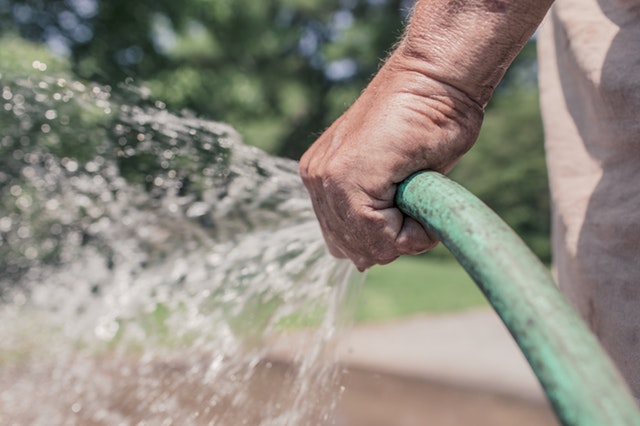
Believe me, I know, I did that too.
And, the idea of setting aside time for yourself can seem overwhelming and unrealistic. But, it is actually achievable.
Even if you just set aside a tiny amount of time at first, you’re likely to find the effects dramatic.
After all, lowering your stress will often make caregiving easier and will increase how effective you are. The process can mean it’s easier to make good decisions and you’re less likely to lose your temper.
For those reasons, along with the benefits to you, finding the time to garden is important, which means making the idea a priority.
And again, you can start small.
Finding the Space
Physical space is another thing. Many people can’t simply carve out a large (or even a small) garden in their own backyard. For that matter, you may not have a backyard at all.
Thankfully, there are approaches you can use to garden, regardless of what space you have at hand.
A great place to start is Pinterest. There are countless ideas on there for gardening in small spaces. This includes setups that allow you to use fences or planters to create vertical gardens, some of which would also work on balconies.
The same is true for indoor gardening as well and you can search for projects and advice about what you can grow inside your house.
Realistically, you can find gardening solutions for pretty much any situation, regardless of the physical space you have at hand. After all, there are many creative people online and no shortage of different projects to try.
Getting the Senior Involved
One other idea is actually getting the senior you’re caring for involved in gardening.
There are two key reasons for this.
The first is to do with time. After all, if your family member is gardening with you, finding the time is much easier.
The other reason is that gardening is beneficial for them too, in many of the same ways. So, for seniors as well, gardening can help promote mental health and it can lower stress, while also being an enjoyable pastime overall. It is even possible for seniors to garden with dementia, or another health condition, provided you plan around any limitations they face.
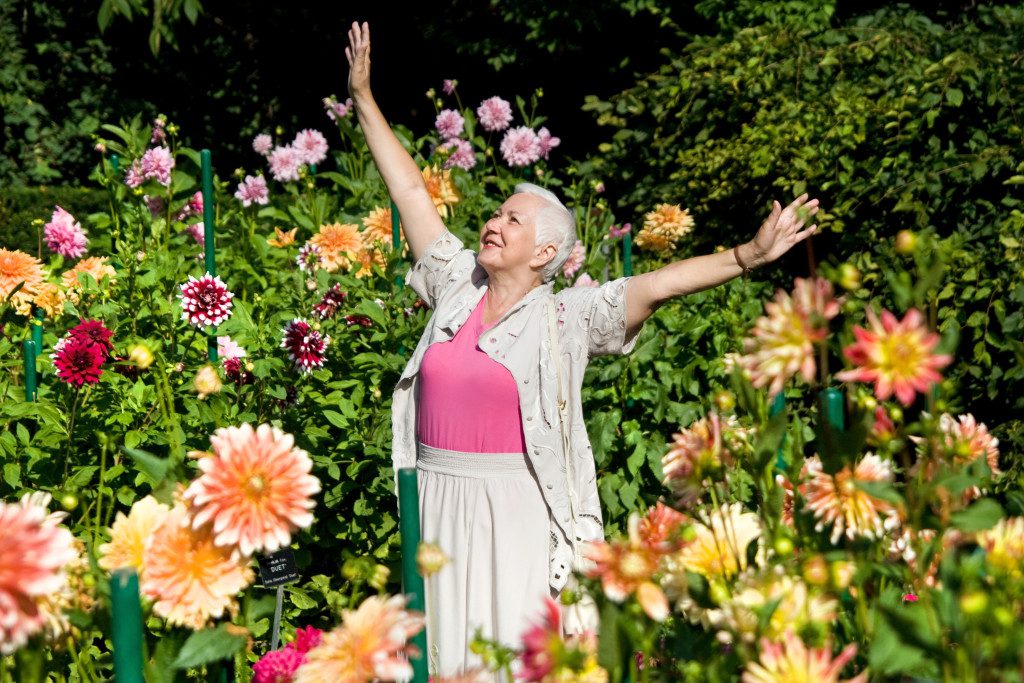
In fact, gardening makes a great form of physical activity for seniors simply because it is enjoyable and isn’t especially intense. In many cases, seniors will be interested in gardening but resistant to anything that they consider to be exercise.
Now, in some cases, involving the senior in gardening could decrease its benefits for you.
Nevertheless, finding a balance is feasible. For example, you might choose to work in the garden on your own most of the time and have them involved every so often. Alternatively, you may have a second garden that you work on yourself.
There are many different solutions to this issue and, of course, you don’t have to get the senior involved if you don’t want to. More than anything, the goal is to figure out an approach that works for you and for your needs.
Personal Experiences with Caregiving and Gardening
I’ll admit, I’ve never been much of a gardener. It is a passion that my mother and my grandmother have but the fascination seems to have skipped over my generation entirely.
But, you don’t have to be passionate about gardening to get benefits out of it. Instead, there is something peaceful that comes from working with your hands in the garden and watching the plants grow.
For myself, the biggest benefit was simply being able to be outside. With a housebound disabled husband and a mostly housebound mother-in-law (and no car), I found that I was often extremely limited in where I could go and what I could do.
There was also the issue that leaving for any length of time might mean a crisis when I came home.
Being able to be out in the garden afforded me the chance to get away and be outside, without stress or worry. Likewise, gardening does act as a simple way to disconnect. And, as I mentioned before, you don’t need a large garden either. Even a small space can offer emotional benefits and you can always expand on it as time goes on.
So, what about you?
Have you been involved in gardening as a caregiver? If so, please let me know how it has worked for you and what your favorite aspects are.
If not, perhaps it’s time to carve out a little time for yourself. Even if you’re not at all interested in gardening, you may find that this approach works well. If nothing else, it’s something new to try – and it really can make the world of difference.
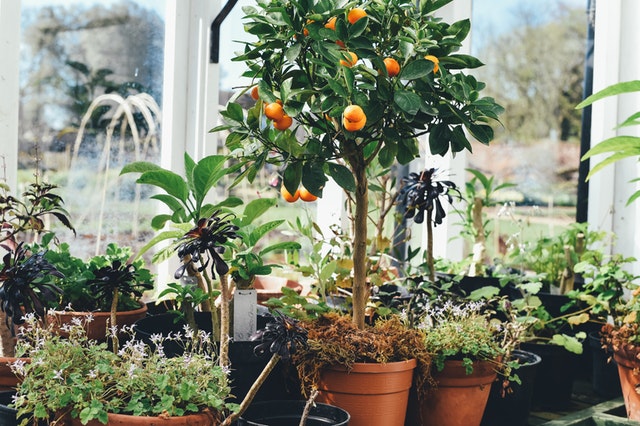
This post includes sponsored links.

Leave a Reply